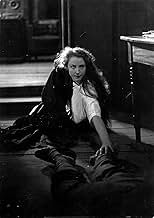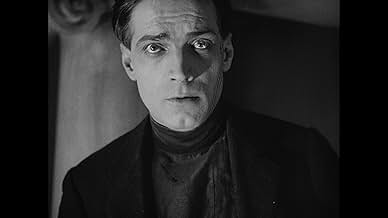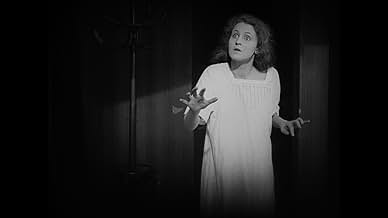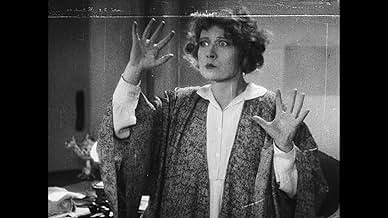NOTE IMDb
7,2/10
926
MA NOTE
En Crimée, les Rouges et les Blancs n'ont pas fini de se battre et Jeanne découvre que l'homme qu'elle aime est un Bolchevique (quand il tue son père). Sans le sou, elle retourne à Paris où ... Tout lireEn Crimée, les Rouges et les Blancs n'ont pas fini de se battre et Jeanne découvre que l'homme qu'elle aime est un Bolchevique (quand il tue son père). Sans le sou, elle retourne à Paris où elle travaille pour son oncle.En Crimée, les Rouges et les Blancs n'ont pas fini de se battre et Jeanne découvre que l'homme qu'elle aime est un Bolchevique (quand il tue son père). Sans le sou, elle retourne à Paris où elle travaille pour son oncle.
- Réalisation
- Scénario
- Casting principal
Margarete Kupfer
- Hotel Maid
- (as Küpfer)
Robert Scholz
- Chief of Police
- (as Scholz)
Avis à la une
Just saw this film and was very impressed with the style and story. Like all the others who have commented, I was immediately drawn in to the story and characters. Even though there were minimal subtitles, the story was not difficult to follow. It is a different way to tell a story where body movement and gestures replace the voice. The orchestral soundtrack was well matched to the mood and action. I had never heard of this film and only found it by accident when searching on whatever became of Bridgit Helm who did not pursue acting after (?) this final film. It is also a historical drama and has interesting details of life in that time. Definitely one of the great films of that era.
"After the Russian Revolution, Civil war raged in the Crimea, bringing in its wake chaos and misery and unscrupulous men."
It is after the revolution Jeanne and her father record the events. Looks like her father is on the losing side when the Red Army arrives. He is dispatched and she is sent to Paris. That is where the story of the revolution ends and a good old-fashioned mystery begins, from the loss of a diamond to even possibly murder.
I always knew that the movie was a classic but other than G. W. Pabst (I have quite a few of his films); I just realized that this was from a novel by Ilja Ehrenburg. Looks like I have some reading to do. And I was surprised to see Brigitte Helm (Metropolis - The Creative Man/The Machine Man/Death/The Seven Deadly Sins/Maria). This film has many facets.
It is after the revolution Jeanne and her father record the events. Looks like her father is on the losing side when the Red Army arrives. He is dispatched and she is sent to Paris. That is where the story of the revolution ends and a good old-fashioned mystery begins, from the loss of a diamond to even possibly murder.
I always knew that the movie was a classic but other than G. W. Pabst (I have quite a few of his films); I just realized that this was from a novel by Ilja Ehrenburg. Looks like I have some reading to do. And I was surprised to see Brigitte Helm (Metropolis - The Creative Man/The Machine Man/Death/The Seven Deadly Sins/Maria). This film has many facets.
Love of Jeanne Ney(1927) is an involving Wartime melodrama with images that impress. Definitely the work of a great director in G.W. Pabst who is the second greatest filmmaker in German Silent films right after Fritz Lang. Includes a post Metropolis role for Brigitte Helm. Acting is very good and the set designs are some of the best in Silent cinema. A downbeat film with a contrasting happy ending.
Like Alfred Hitchcock, director G.W. Pabst's films have the feeling of having been created by someone with great technical ability. THE LOVE OF JENNY NEY (DIE LIBE DER JEANNE NEY, Germany, 1927)plays like one of the great Hitchcock films from the sound era. As the so called silent era came to an end the art of cinema seemed to burst into full flower. Look at Murnau's SUNRISE, Vidor's THE CROWD, Seastrom's THE WIND, De Mille's THE KING OF KINGS (to name a few) and it is easy to see why the artist of the day were reluctant to enter the world of "sound". The DVD version of THE LOVE OF JENNY NEY from Kino Video is truly beautiful to look at. The new orchestral score by Timothy Brock is excellent and very effective. Like many of Pabst's films, a little patience is required, as characters and situations only become clear as the story progresses. And this film plays like a classic Hitchcock film -- with innocent people getting deeper and deeper into a web of destruction. This is a film that is even more interesting to watch the second time around. And as noted above, it is truly a text book of what the silent cinema was capable of doing. Brigette Helm, who made such an impression in Fritz Lang's METROPOLIS, gives a moving performance as a blind girl pulled into the intrigue. Well worth adding to your collection if you care for great cinema!
Probably the most famous movies focusing on the revolution are David Lean's "Dr. Zhivago" (about a physician caught up in the revolution) and Warren Beatty's "Reds" (about US journalist John Reed, who covered the revolution). A lesser known one is "Die Liebe der Jeanne Ney" ("The Love of Jeanne Ney" in English). The convoluted plot of G. W. Pabst's movie depicts intrigue and treachery in the wake of the revolution, with the titular character - the daughter of a French diplomat - in love with a Bolshevik.
The movie is hard to follow at times; this isn't some Michael Bay movie where you can simply shut your brain off to watch it. Even so, you'll feel fulfilled by the end of it. The only cast member whom I recognized was Brigitte Helm, who that same year played the Machine Man in Fritz Lang's "Metropolis".
Not a masterpiece, but worth seeing.
The movie is hard to follow at times; this isn't some Michael Bay movie where you can simply shut your brain off to watch it. Even so, you'll feel fulfilled by the end of it. The only cast member whom I recognized was Brigitte Helm, who that same year played the Machine Man in Fritz Lang's "Metropolis".
Not a masterpiece, but worth seeing.
Le saviez-vous
- AnecdotesMilly Mathis's debut.
- Versions alternativesTwo different edits of the film exist. The A Negative, for the American market (86 mins) and the B negative, for the German market (105 mins). The two versions feature different camera angles and some cuts were made for the American market.
- ConnexionsFeatured in Die UFA (1992)
Meilleurs choix
Connectez-vous pour évaluer et suivre la liste de favoris afin de recevoir des recommandations personnalisées
Détails
- Durée1 heure 44 minutes
- Mixage
- Rapport de forme
- 1.33 : 1
Contribuer à cette page
Suggérer une modification ou ajouter du contenu manquant























